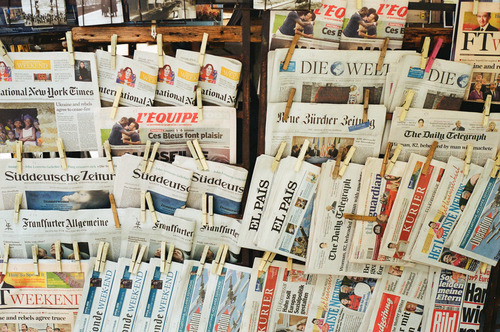
Photograph by Teju Cole
I’ve never really worried about writer’s block. I think of breaks from writing more as “installing important updates,” focusing on input rather than output. But lately I’ve been going through a period of reader’s block, a new and frustrating experience. I haven’t been in the mood to read books or even articles. This got me thinking about the reading habits of writers; I wondered how they differed from my own. So I asked thirteen questions to ten writers I admire, working in different genres, in an attempt to discover how writers read.
—Elisa Gabbert
11) In general, how do you decide what to read next? Do you think about diversity when choosing what books you read (i.e. do you try not to only read books by white men)?
ALICE BOLIN: I do think about diversity, or maybe I just gravitate towards books by women? Usually I just get on a kick and just read lots of books by one author or about one subject.
TEJU COLE: I don’t think a whole lot about color when I chose what to read—maybe that kind of diversity just comes my way without my having to consider it—but I do think about gender. I’m sick of men. Aren’t we all? And even in this sickness, we are socialized to give men and male work far more space than they really should have. And it’s also important to me to read well beyond what’s part of the American conversation.
DARCIE DENNIGAN: I like a lot of white male authors. But the most interesting contemporary work is definitely being written by women. I don’t on purpose seek out women writers, but probably every book on my wishlist right now is by a woman.
I don’t think about diversity when I choose books (unless I’m reading in order to create a syllabus), but now that you’ve asked the question, I admit that in ignoring that issue and not actively seeking books written by people from other cultures and races, I’m closing myself off. Or worse. Worse.
JORDAN ELLENBERG: I do think about that. I try to read a reasonable number of books by women (it’s easy not to, if I don’t think about it) and I try to read some books in translation. I try to read some books written before I was born.
GRAHAM FOUST: I wander around my house or office or the library and ogle the books. I think I think about “diversity.”
RUTH GRAHAM: I don’t think at all about diversity, for better or for worse. Some of my all-time favorite authors are white men, though I suppose in general I gravitate more toward...
You have reached your article limit
Sign up for a digital subscription and continue reading all new issues, plus our entire archives, for just $1.50/month.
Already a subscriber? Sign in




